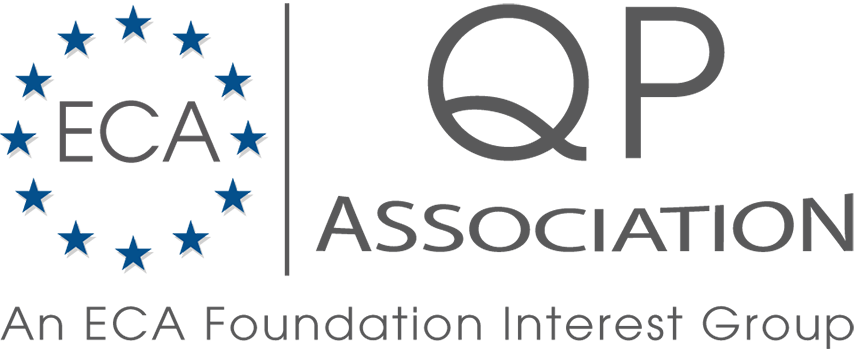15 August 2011
First ECA/ EQPA Conference in the U.S. a great Success
From 7-9 June 2011, the first joint conference of the
European Compliance Academy and European QP Association was held in Bethesda,
Maryland. The Conference attracted delegates from all over the U.S. who were
given the opportunity to inform themselves about the latest development
regarding European GMPs and the duties and responsibilities of the Qualified
Persons according to the European regulations.
This joint Conference was designed by QPs and international experts as a forum with
a focus on sharing information and experience and on discussing the critical areas of
European GMPs and the QP’s daily work.
Speakers from FDA, EMA and the European QP Association presented latest developments,
current issues and shared their point of view. During two post-conference sessions
covering batch release and investigational medicinal products, various case studies
were presented and discussed to come up with possible solutions.
In the following some highlights of this major event are summarised:
The opening presentation was provided by Dimitrios Catsoulacos, Scientific Administrator –
Manufacturing and Quality Compliance at the European Medicines Agency (EMA). The presentation
informed about the EU Regulatory system and explained the EU Regulatory Framework and its
current role in a globalising world with a focus on the new legislation on falsified medicines.
This new initiative will lead to an amended Directive 2001/83/EC, introducing new requirements in 4 areas:
- Safety Features
- Supply Chain and GDP
- Active Substances
- Internet Sales
“The new legislation on falsified medicines aims to prevent falsified
medicines from reaching the patients by introducing harmonised safety and control
measures promotes international collaboration between EU and authorities in third
countries to ensure inspections of API manufacturing plants both inside and outside
the EU”, Dimitrios explained.
Dr Janice Soreth, the FDA Deputy Director Europe, currently based at EMA’s office
in London, presented EMA and FDA authority positions with respect to the differing
GMPs and the role of the QP. Janice emphasised that “FDA is committed to networking
with counterpart regulatory agencies, sharing training opportunities and promoting
quality systems”. Janice also shared her point of view of the different responsibilities
for pharmaceutical product quality in the EU and the U.S.
In his second presentation, Dimitrios Catsoulacos introduced the different documents
and tools which are needed to import medicinal products in the EU like MIAs, Import
license, GMP Certificates and the EudraGMP database. He also gave an introduction to
the different types of GMP Inspections and the responsibilities of the member states.
Mark Tucker, Senior Director, GMP Compliance at Genentech Inc., South San Francisco,
USA, where he has the full strategic responsibility for GMP Compliance has experienced
European GMPs especially during the merger with Roche and had a close look on the possible
options on how to align the two systems with their pros and cons:
intended to help QPs to verify the basic audit expectation.
For further information about this topic please also see:
- Dedicated Facilities: Have at least two sites, each based on a Quality System specific for that region
- Two Systems / Same Site: One site using a different Quality System depending on intended batch disposition
- One system, multiple sites: One global Quality System implemented that complies with both regions Quality System requirements
- Hybrid: One system, dedicated facilities, the role of the QP is not fully understood and not really appreciated and that these and other
differences may lead to significant issues for industry in the future as other countries implement a QP system.
In the second part, the members of the European QP Association’s Advisory Board,
Dr Christopher Burgess, Richard M. Bonner and Chairman Dr Bernd Renger, all of them well
experienced QPs, gave a thorough overview on European GMPs and the duties and responsibilities of
Qualified Persons. The presentations raised a lot of questions that were discussed intensively
with the delegates during sessions like:
- The Legal and Professional Duties of the Qualified Person
- QP Duties and Responsibilities – individual Member States’ Regulations
- The EU Discretion Paper and the Release of Batches by the QP
- EU Inspections in the U.S. and the Involvement of the QP
- The Role of the QP in Contract Manufacturing and Testing
- The Role of the QP in the Supply Chain and Supplier Qualification
- EU Product Quality Review Requirements versus US Annual Report Requirements
- The US Quality Unit versus the EU QP
As a third part, two post-conference workshops were held on the topics
“Certification by a QP and Batch Release – what would you do if you were personally liable?”
and “Clinical Trial Supplies: IMP Handling in Europe and the Role of the QP” The latter was
facilitated by Martine Tratsaert, Head of the Global Qualified Person Group (GQPG) at Johnson
and Johnson in Belgium. She is also a member of the Qualified Person Association Advisory Board
and responsible for the IMP working group.
During these parallel sessions, various case studies were presented and discussed to come up with
possible solutions.
Overall, the conference can be considered a great success. Besides the huge amount of information
provided, the delegates made use of this event by exchanging experiences with speakers and
colleagues and by using the networking possibilities. This was also shown by the feedback the
organisers got. Here are a few examples:
- “The conference was very informative and provided significant information regarding QP role and associated regulations"
- "Great way for teaching US colleagues about QP role"
- "The openness and access to the speakers was great."
- "I will definitely recommend this course to colleagues"
- "This was a great event! Great information with great discussions."
Based on all of this, the European Compliance Academy decided to offer this conference
again in 2012 in the U.S. We’ll keep you informed.
Wolfgang Schmitt
Administration Manager
European QP Association
|



